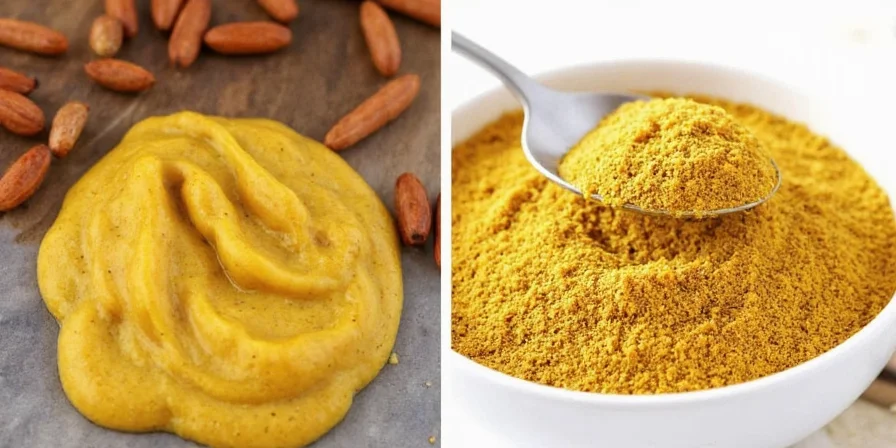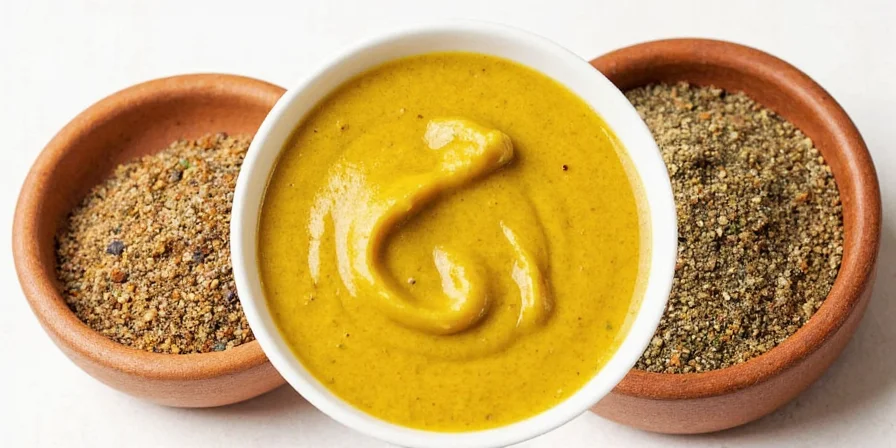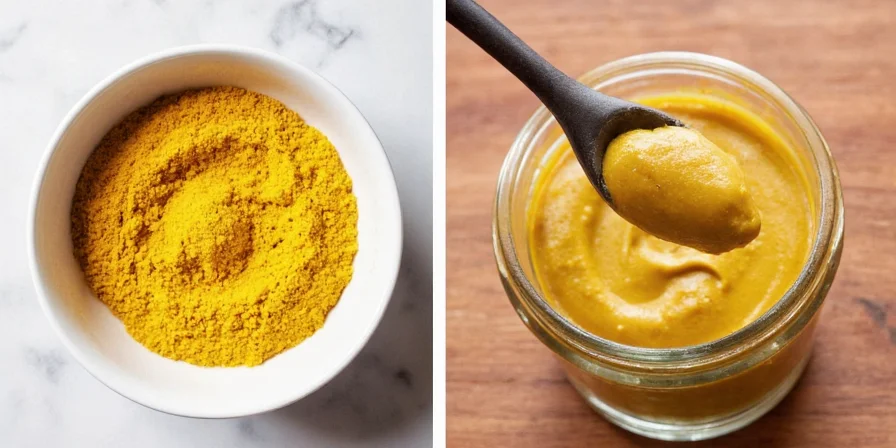Table of Contents
- What Is Mustard Seasoning and How to Use It Properly
- Tip #1: Grind Fresh Seeds for Maximum Flavor Impact
- Tip #2: Perfect Honey Mustard Ratio for Balanced Flavor
- Tip #3: Mustard in BBQ Marinades for Better Smoke Absorption
- Tip #4: Create Stable Creamy Sauces with Mustard Powder
- Tip #5: Fix Separating Salad Dressings with Mustard
- Tip #6: Roasted Vegetable Enhancement Technique
- Tip #7: Beer Mustard Braising Liquid for Tender Meats
- Tip #8: How to Make Homemade Mustard Powder
- Tip #9: Mac and Cheese Flavor Booster Trick
- Tip #10: Correct Mustard Storage to Preserve Potency
- Why Mustard Works: Practical Science Explained
- Mustard Seasoning FAQs Answered
- Conclusion: Getting the Most from Mustard Seasoning
What Is Mustard Seasoning and How to Use It Properly
Mustard seasoning delivers sharp, complex flavor to dishes when used correctly. Unlike prepared mustard, dry mustard powder or whole seeds require specific activation methods to maximize flavor without bitterness. For best results, always mix mustard powder with cold liquid first and wait 4 minutes before adding to recipes—this allows enzymatic reactions to develop full flavor while preventing bitterness. This guide provides exactly what home cooks need to know for perfect mustard application in everyday cooking.

Tip #1: Grind Fresh Seeds for Maximum Flavor Impact
Pre-ground mustard powder loses 60% of its flavor compounds within 3 months. For dishes where mustard is the star flavor, grind seeds immediately before use with a dedicated spice grinder.
- Use fine grind for sauces and dressings
- Use coarse grind for meat rubs to create texture contrast
- Grind 1 tsp seeds to yield exactly 1 tsp powder

Tip #2: Perfect Honey Mustard Ratio for Balanced Flavor
The ideal honey-to-mustard ratio depends on your application. Many home cooks use too much honey, overwhelming the mustard's complexity.
| Application | Mustard:Honey Ratio | Result |
|---|---|---|
| Dipping sauce | 2:1 | Sharp, tangy profile |
| Meat glaze | 1:1.5 | Caramelizes without burning |
| Salad dressing | 1:0.5 | Subtle background note |

Tip #3: Mustard in BBQ Marinades for Better Smoke Absorption
Adding 1 teaspoon mustard powder to dry rubs creates a sticky surface that holds smoke compounds. Apply the rub 12 hours before cooking for best results.
- Use yellow mustard powder for poultry and pork
- Use brown mustard powder for beef and lamb
- Ideal ratio: 1 part mustard to 4 parts paprika in rub mixtures
Tip #4: Create Stable Creamy Sauces with Mustard Powder
Mustard powder prevents sauce separation better than egg yolks. Add 1/2 teaspoon to cold base before incorporating fats.
- For aioli: Mix mustard with garlic paste before adding oil
- For cheese sauces: Add at 160°F to prevent curdling
- For mayonnaise: Use 1 tsp per cup for stable emulsion

Tip #5: Fix Separating Salad Dressings with Mustard
Vinaigrettes separate because oil and vinegar naturally repel each other. Mustard powder solves this problem completely.
- Use 1/4 teaspoon per 1/4 cup dressing
- Mix powder with vinegar first, then add oil slowly
- Stays emulsified for 72 hours in refrigerator
Tip #6: Roasted Vegetable Enhancement Technique
Toss vegetables with 1/2 teaspoon mustard powder and 1 tablespoon oil before roasting. The powder enhances browning without adding noticeable mustard flavor.
- Works best with cruciferous vegetables (cauliflower, broccoli)
- Apply after oil to prevent burning
- Creates complex nutty flavors through Maillard reaction

Tip #7: Beer Mustard Braising Liquid for Tender Meats
Beer's carbonation activates mustard enzymes faster. Simmer 2 teaspoons mustard powder in 1/2 cup reduced beer for 10 minutes before adding to braise.
- Ideal for short ribs, brisket, and pork shoulder
- Use amber or brown ale for best flavor pairing
- Reduces cooking time by 15% while improving tenderness
Tip #8: How to Make Homemade Mustard Powder
Store-bought powder often contains fillers. Make your own for pure flavor control.
| Seed Type | Processing Method | Best Uses |
|---|---|---|
| Yellow mustard | Toast 300°F for 6 minutes | Cream sauces, salad dressings |
| Brown mustard | Toast 300°F for 8 minutes | Meat rubs, robust dishes |

Tip #9: Mac and Cheese Flavor Booster Trick
Add 1/2 teaspoon mustard powder when cheese reaches 160°F in sauce. This temperature prevents curdling while maximizing flavor integration.
- Use with aged cheddar for enhanced umami
- Reduces need for excess cheese by 20%
- Creates more complex flavor without noticeable mustard taste
Tip #10: Correct Mustard Storage to Preserve Potency
Mustard degrades when exposed to oxygen and light. Proper storage maintains potency.
- Whole seeds: Store in airtight container in freezer (2+ years)
- Ground powder: Amber glass jar with tight seal (6 months)
- Never refrigerate mustard powder (causes clumping)

Why Mustard Works: Practical Science Explained
Mustard's flavor develops through a simple chemical reaction. When water contacts crushed seeds, enzymes convert compounds into flavorful elements. This reaction peaks at 4 minutes—timing critical for perfect flavor without bitterness.
| Condition | Result | Best Application |
|---|---|---|
| Mixed with cold liquid | Full flavor development in 4 minutes | Sauces, dressings |
| Mixed with hot liquid | Bitter compounds form immediately | Avoid this method |
| Aged preparation | Flavor mellows and deepens | Marinades, braises |
Mustard Seasoning FAQs Answered
How much mustard powder equals prepared mustard?
Use 1 teaspoon mustard powder plus 2 teaspoons cold water to replace 1 tablespoon prepared mustard. Let the mixture rest for 4 minutes before using for full flavor development.
Why does my mustard taste bitter?
Bitterness occurs when mustard powder contacts liquids above 140°F. Always mix with cold or room temperature liquids and allow 4 minutes for proper flavor development before heating.
Can I substitute mustard powder for fresh mustard?
Yes, use 1 teaspoon powder plus 2 teaspoons cold water for each tablespoon of prepared mustard. For dry rubs, mustard powder works better than prepared mustard which can burn.
How do I fix a dish with too much mustard?
Balance excess mustard flavor with equal parts acid and fat—add 1 teaspoon lemon juice and 1 tablespoon cream or yogurt per cup of sauce. Stir gently to avoid breaking the emulsion.
Conclusion: Getting the Most from Mustard Seasoning
Proper mustard seasoning technique transforms ordinary dishes with minimal effort. By understanding the simple 4-minute activation window, correct storage methods, and precise ratios for different applications, home cooks achieve restaurant-quality results. Focus on three fundamentals: always use cold liquids, wait 4 minutes for flavor development, and store powder properly. Implement just one technique from this guide in your next meal to immediately improve flavor complexity without overwhelming mustard taste. These practical methods work consistently whether you're making sauces, roasting vegetables, or preparing meats—elevating everyday cooking with scientifically-proven results anyone can achieve.











 浙公网安备
33010002000092号
浙公网安备
33010002000092号 浙B2-20120091-4
浙B2-20120091-4